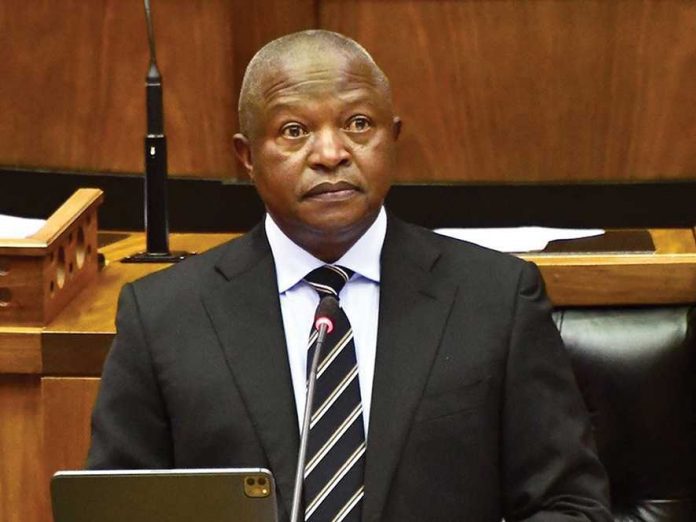Deputy President David Mabuza on Thursday assured MPs in the National Assembly that the government has no plans to privatise Eskom.
“Government policies ad positions have not reached a point where the privatisation of Eskom is seen as an answer,” the deputy president said.
“Our current choice is to make Eskom a more efficient and effective energy generation and transmission public entity with all the necessary capabilities to ensure the security and consistency of energy supply in the interest of our economy and human development in general.”
Mabuza said Eskom is currently in an advanced stage of the process of unbundling, noting that this will result in the transformation of the power generation sector.
“It would be inaccurate to characterise the current organisational transformation happening within Eskom as privatisation or implied intention to facilitate it.”
Mabuza also stated that the government understands the frustrations of the nation as a result of ongoing power cuts due to breakdowns of an aging fleet and power plants, noting that the state is focusing on improving maintenance and repairs to ensure increased energy availability.
Meanwhile, a study by Sakeliga shows that businesses are fast becoming less dependent on Eskom, blaming the migration to costly rolling blackouts.
Russell Lamberti, executive director of research and strategy at Sakeliga, shared in August that loadshedding has cost businesses greatly and added that business people are now vying for the privatisation of electricity generation and distribution.
“Complete dependence on Eskom has diminished substantially over the last three years, with acute dependence falling from 60% to 35% of those surveyed. However, most businesses remain dependent on Eskom to a significant degree,” said Lamberti.
“Less than one in five businesses surveyed consider themselves completely independent of Eskom’s power supply, and this has not changed in the last three years.
“Business owners are clearly demanding the ability to buy energy from alternative producers and distribution networks that can affordably meet their industrial-scale needs. Therefore, over 90% of those surveyed fully agree that South Africa’s energy market must be completely opened to private power production and distribution.
“These results strongly underscore our view that full energy market liberalisation is an urgent imperative.”
Sakeliga surveyed more than 478 businesses to determine the cost of the rolling blackouts on its member businesses. Sixty-four percent of the respondents were small businesses with only 10 or fewer employees.
The survey, which was conducted during the peak of loadshedding in June, has found that businesses are now spending more on alternative power sources to alleviate power shortages.
It further indicates that the direct costs of severe loadshedding amount to a substantial 5% turnover for the median business that has a monthly revenue of about R300 000 while reporting a loss of R8 000 a month from April to July.
Lamberti added that an increase in power shortages in June has had a negative impact on economic growth and business health, stating that the scarcity poses a threat to Sakeliga’s member businesses.
According to Lamberti, sustainable solutions are required to curb the issue of electricity generation and distribution. However, these are costly, and small and medium businesses will not afford them.
He warned that the inability to establish private production and distribution networks, due to state regulations, limits the options for independence from the state’s power utility.
“If this freeing of the energy market, in the vital interests of society, is not granted by the state, then energy independence will have to be claimed by concerted civic and private efforts,” he said.
Also read: Mabuza to answer questions on privatisation of Eskom
To read more political news and views, click here.
Follow @SundayWorldZA on Twitter and @sundayworldza on Instagram, or like our Facebook Page, Sunday World, by clicking here for the latest breaking news in South Africa. To Subscribe to Sunday World, click here.




